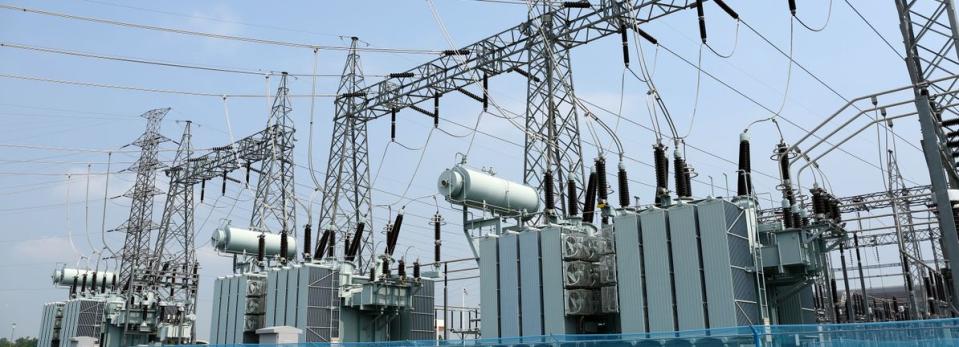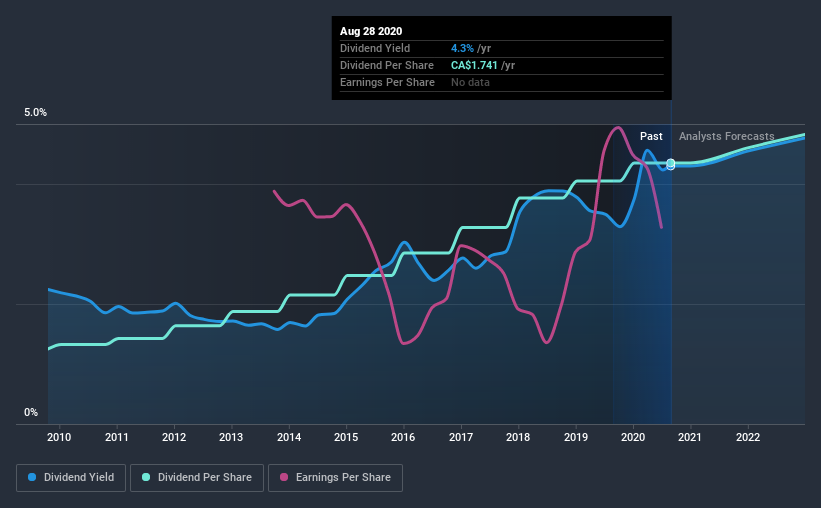ATCO Ltd. (TSE:ACO.X) Will Pay A CA$0.44 Dividend In Four Days

Regular readers will know that we love our dividends at Simply Wall St, which is why it's exciting to see ATCO Ltd. (TSE:ACO.X) is about to trade ex-dividend in the next 4 days. If you purchase the stock on or after the 2nd of September, you won't be eligible to receive this dividend, when it is paid on the 30th of September.
ATCO's upcoming dividend is CA$0.44 a share, following on from the last 12 months, when the company distributed a total of CA$1.74 per share to shareholders. Looking at the last 12 months of distributions, ATCO has a trailing yield of approximately 4.3% on its current stock price of CA$40.48. Dividends are an important source of income to many shareholders, but the health of the business is crucial to maintaining those dividends. That's why we should always check whether the dividend payments appear sustainable, and if the company is growing.
Check out our latest analysis for ATCO
If a company pays out more in dividends than it earned, then the dividend might become unsustainable - hardly an ideal situation. ATCO paid out more than half (51%) of its earnings last year, which is a regular payout ratio for most companies. Yet cash flow is typically more important than profit for assessing dividend sustainability, so we should always check if the company generated enough cash to afford its dividend. It distributed 28% of its free cash flow as dividends, a comfortable payout level for most companies.
It's encouraging to see that the dividend is covered by both profit and cash flow. This generally suggests the dividend is sustainable, as long as earnings don't drop precipitously.
Click here to see the company's payout ratio, plus analyst estimates of its future dividends.
Have Earnings And Dividends Been Growing?
When earnings decline, dividend companies become much harder to analyse and own safely. If earnings decline and the company is forced to cut its dividend, investors could watch the value of their investment go up in smoke. That's why it's not ideal to see ATCO's earnings per share have been shrinking at 2.2% a year over the previous five years.
Another key way to measure a company's dividend prospects is by measuring its historical rate of dividend growth. ATCO has delivered 13% dividend growth per year on average over the past 10 years. Growing the dividend payout ratio while earnings are declining can deliver nice returns for a while, but it's always worth checking for when the company can't increase the payout ratio any more - because then the music stops.
Final Takeaway
From a dividend perspective, should investors buy or avoid ATCO? We're not enthused by the declining earnings per share, although at least the company's payout ratio is within a reasonable range, meaning it may not be at imminent risk of a dividend cut. In summary, while it has some positive characteristics, we're not inclined to race out and buy ATCO today.
If you're not too concerned about ATCO's ability to pay dividends, you should still be mindful of some of the other risks that this business faces. For example, ATCO has 2 warning signs (and 1 which makes us a bit uncomfortable) we think you should know about.
We wouldn't recommend just buying the first dividend stock you see, though. Here's a list of interesting dividend stocks with a greater than 2% yield and an upcoming dividend.
This article by Simply Wall St is general in nature. It does not constitute a recommendation to buy or sell any stock, and does not take account of your objectives, or your financial situation. We aim to bring you long-term focused analysis driven by fundamental data. Note that our analysis may not factor in the latest price-sensitive company announcements or qualitative material. Simply Wall St has no position in any stocks mentioned.
Have feedback on this article? Concerned about the content? Get in touch with us directly. Alternatively, email editorial-team@simplywallst.com.

 Yahoo Finance
Yahoo Finance 
